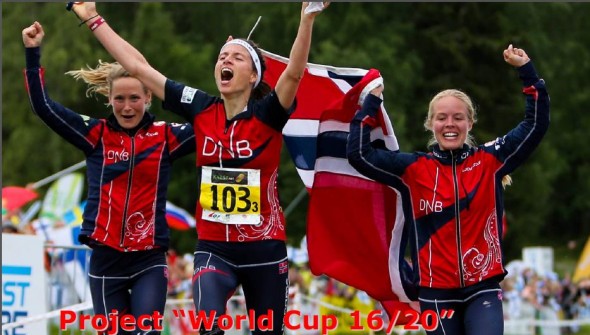
– We want to make the race series more attractive for all partners: Athletes, spectators, organizers and media, says Matthias Niggli on behalf of the project group WorldCup 16/20. Niggli is heading the project together with his wife Simone.
[Disclaimer: The author of this article/interview has been part of the expert group associated with this project, as stated further down in the introduction to the interview. The interview is however published based on journalistic considerations, and not due to the association with the project]
The goal for the project is to take over the full responsibility for the World Cup from the IOF – and to deliver a top experience for athletes, spectators, organizers and media, according to Niggli. Niggli & Niggli have used a group of experts to help define how to achieve these goals in a best possible way; Radek Novotny, Annichen Kringstad, Matthias Merz, Christian Toberer and Jan Kocbach have been part of this expert group.
Read on for an interview with Matthias Niggli on what the project WorldCup 16/20 wants to achieve – and how they want to implement it.
Q: How does the suggested future World Cup in the WorldCup 16/20 project differ from today’s World Cup?
When IOF decided to change the World Cup after 2006 and to attach World Cup races to already excisting competitions like O-Festivalen, Jukola, O-Ringen, the competition changed completely. It was more like the sum of several individual competitions than a World Cup with several rounds. After some seasons, the set-up changed smoothly without thinking about it. Today we have a World Cup with several “rounds”, but they don’t deserve the name. It’s more like a random number of competitions without much structure.
Here our project starts. We want to make a World Cup season which suits the international athletes. The World Championships are the most important event, but except for that we try to have 3 World Cup rounds from April until September/October. Every round shall consist of several races in all WOC-disciplines and shall be held in one or two countries with small travel distances. It sounds much like the World Cup in the earlier days…
Beside of the structure of the programme, we want to make the race series more attractive for all partners: athletes, spectators, organizers and media. Today, orienteering has many new technical possibilities, we want to introduce them as a standard in World Cup (e.g. live tracking, live results, speaker services, video production,…).
Q: What is IOF’s response to the suggested project? Is this something we will see realized in the future?
IOF is interested, but they have not the same enthusiasm as we have to go fast forward. In our eyes, World Cup needs a refreshment quite fast, otherwise the product is with such a low prestige for both competitors, organizers and fans, that it will be difficult to wake it up. We don’t want to wait 100 years like the sleeping beauty…
We are in discussion with the IOF since January, our deadline to get a positive feedback and a letter of intend from the IOF is mid-July. If we do not get the support until then, we will move onwards to other projects. It’s an offer from our side to develop international orienteering, but we also have other ideas and skills.
If we get the green light by mid-July from the IOF or the national federations, we will work hard to get the whole thing so far until December that we can sign a contract with the IOF for the coming years and the rights of World Cup. The financial part will be a big issue, we need good partners and sponsors to get the train rolling. We have some ideas, but we need the support of the IOF first to take concrete steps.
In our eyes, IOF has nothing to lose if they signalize us to go forward and to work with us. If we do not succeed with the next steps until December, they still have the status quo with World Cup as it is today. But we will put all our effort to make this story working.
Q: Today many of the top runners skip several World Cup races – this is probably the biggest problem with the World Cup we have now. How will you get all the best runners to participate in the new World Cup?
Even today’s top orienteers are still attracted by challenges and not monetary reasons. There we want to catch them. The races shall be attractive because of the terrain, the challenges and the competition format. With rounds with several races, the athletes will also get experiences and adventures to memorize.
The World Cup shall be the races to be at. If you are not there and you see the map sitting at home, your next goal shall be to visit this place and map.
Q: The first sentence in the realization plan for the suggested WorldCup 16/20 is “All stars are at the starting line”. Is this new World Cup made only to suit the big stars?
No, not at all. Terrain, races and formats will be attractive for the best runners of every nation. After the change of WOC with no more forest qualifications and quota places in the finals, we think that the New World Cup could be very attractive for these runners not qualifying for WOC. With the World Cup rounds with several races in all formats it even gives a lot of value and chances for runners travelling a long way for it.
One of our goal is also to lower the participation costs, that means that as many nations and top runners of these countries shall be at the startline.
Q: How will this new World Cup be for the spectators?
First of all, the new World Cup will be recognizable. The set-up always look the same, the Orienteering World Cup shall become a brand. So the spectators know where to look for information, standings, stories and live-coverage. In our eyes, every discipline has very good possibilities for spectators. Sprint is for the on site-spectator, middle for the video screen production, long for the live-tracking fans sitting at home. And of course, the relay will be back, because it is probably the most exciting format to watch.
Our plan is to focus on internet to allow full coverage of all races.
Q: It looks like you and Simone [Niggli] have put a lot of work into this project. You have also put a lot of work into JWOC in Switzerland in 2016. What is your motivation behind this work?
Orienteering is our love and we got a huge number of experiences during our careers as runners and coach. Now it’s time to take the next step and also to give something back to our loved sport. We think that we have skills and knowledge to push orienteering forward without losing the main character of the sport. It shall still be an adventure to run orienteering and an unforgettable experience to run a Wolrd Cup race or a JWOC. But the world of fans, supporters and sponsors needs to participate and follow.
But as said above, we need the support and the green light of IOF and the member federations to develop our project further. The opportunity is big, because we both are looking for new challenges, but the opportunity is now. If IOF hesitates, we will have to move onwards without developing the World Cup.
—————————————————–
Below a PDF-file with more in-depth description of the project is included. This file even includes a suggested World Cup program for 2016.
Open for discussion
What do you think about how the World Cup should be in the future? Are the ideas presented by Niggli a good way to go? Should the IOF let another group take responsibility for the World Cup, or should rather the IOF develop the World Cup themselves?
 World of O News
World of O News
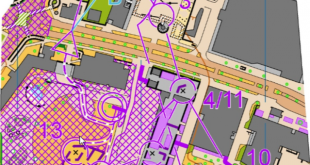
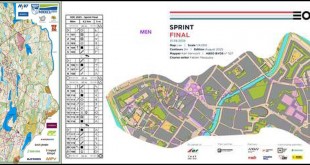
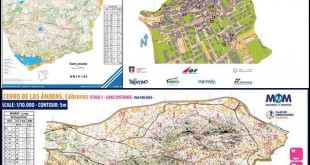
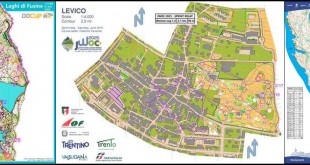
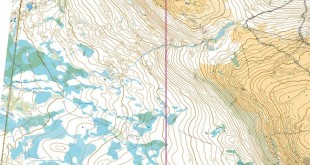
Great ! Hope it will push IOF
Did the national federations receive officially this project ?
Hello Sim
I will send it to the national federations today or tomorrow and hope that it will create some discussions before the General Assembly in Italy.
very good idea, it looks a little bit like the wc in the nineties, but the big nations in the iof cancelled ore deformed the format, why should they say now ok ?
Hello Hego
We hope of course, that the big nations will support us. Today’s World Cup is not very attractive for the big nations either…
i hope it too, but there is a rethink in parts of scandinavia necessary …
Finnish Orienteering Federation will fully support of Nigglies´idea.
I personally love that they seem to know what each discipline is good for.
“Sprint is for the on site-spectator, middle for the video screen production, long for the live-tracking fans sitting at home”
Finally some people who got it!
Enthusiasm and strength to push orienteering forward is a key and always a good sign. Great initiative.
If Niggli group have better skills to sell the WCup to sponsors and bring partners than this should be supported because IOF hasn’t done this in the last years. They have tried with internal staff and external partners and failed.
From outside perspective this is probably a very good chance for IOF to put aside WCup administration tasks and focus solely on WOC, development projects, and services that they want to provide to IOF event organizers. IOF has a plan to develop integral IT services (IT, LiveCenter, World Ranking). It must be very clear how much IOF is tend to put into this projects, how much Niggli group and how much it will cost each organizer to rent the basic system. First, IOF must be clear about the budget which is necessary to put the system live and which costs and partners are already associated to these projects. For now it is not clear how much IOF already has spent(in the last 15 years/results) or will spend in the future based on already signed contracts for external IT services and internal IT projects.
To “take over” means also that “entrepreneurial risks” must be part of the contract. If the group is tend to put also their money into the project than this proposal could be more credible.
Why waiting for an IOF decision? If a group is in a position to prepare a draft contract with a more exact financial clauses, obligations and distribution of liabilities between them and IOF than they must present it to national federations asap. All solutions for federations and runners are very good spotted and I don’t doubt that the whole idea would get a initial support from a federations. Negotiation with IOF is in my opinion a “no go” because of two different worlds (sport bureaucracy and sport management). If the group can focus only on sport management and have a mixed WCup group for political issues (program, rules, etc) maybe there are more chances to get an initial support.
If Niggli group has set goals, know which path they want to go and have determination to execute the idea than might be better to try to get a support for extraordinary General Assembly next year and negotiate with IOF only on details. In the past there was a similar PWT proposal and IOF didn’t support it.
All the best.
Samo
Thanks, Samo, for your reply.
We will take your points and ideas into consideration. It’s a big task to convince IOF and the member federation and – if convinced – to get the financial base to make the World Cup growing as a attractive platform for international orienteering. But if we don’t try it, we will not know if it is possible. So we are thankful for your motivation words.
I went through the PDF proposal and I hope you don’t mind that I ask you one question. Thanks for your reply and transparency.
I agree with ola. There must be at least a promise
and a clear deadline to get a title sponsor on board (~1 year) otherwise proposal might be too idealistic and too risky.
I assume you think a lot about Organizer’s and runner’s income/costs sheet. Can you present it in details so anyone can understand what are the mayor differences compare to existing Wcup. I also must admit that I didn’t get a clue how & what exactly Niggli group want to control/provide on business/organizational/event management/and media&sponsors rights area in this 4 years time frame. Please be more specific how you see the business part of your proposal.
As said above, it will be a big task to get the financial thing working. We will not give any detailed financial plan at the moment, but we want to push World Cup forward. If we look at today’s standard, there is all work to be done by the local organizer. There we want to enter and help organizers with a global organization for World Cup.
Next week will be decisive, we will have discussions with the IOF council and after that, we hope to be allowed to push the project further. We will keep in touch with you about our ideas and also about the financial issues/collaboration with local organizers.
“Transportation during a World Cup round has
to be possible without travelling by flight. The different event venues shall be reachable by
car/bus/train within a few hours”
Might there be some countries where the WC won’t exists anymore. Or in which countries they shall be according to that definition.
Hello Gunter
You maybe missunderstood this travel-part. The meaning was, that there shouldn’t be much travelling during one of the three rounds, but the three rounds can be spread out. We want to avoid, that one round is held in Kongsberg and Imatra, because then you cannot talk about a round anymore. It should be like next year with Strömstad/Halden in one round.
Of course we want to make the World Cup in all possible countries and not only in driving distance from Switzerland.
Without a big title sponsor to cover costs it will not be sustainable. They just put expenses on organisers and says athletes shall not pay anything and stay for almost free. Who will want to organise? We all know organisers struggle to get sponsors locally and have huge costs for maps and competitions. Who will finance this? And no flights in a round? Good luck with your new World cup then, Switzerland, Italy, Austria and Czech Republic…
The new idea is great for the athletes, they just forget that someone have to organise, someone have to pay, and since new concept is less attractive for media and probably not more attractive for sponsors, I don’t see how this could happen without a big sponsor to cover costs.
You are right, Ola. We need a title sponsor and other sponsors. But why should it be impossible to sell a good product to sponsors? We will go hard to get a solution, if we get support from federations and IOF to develop our project further.
Our idea is exactly the other way round: we skip the sanction fee which local organizers have to pay to the IOF, because we want sponsors to stay for these costs. Like this, the local organizer doesn’t need to pay money a long time before the competition. So they have more possibilites to get the race, maps etc. financed (spectator events beside and/or local sponsorship).
We are sure that World Cup can be attractive for both runners, organizers, media and sponsors. so let’s give us a chance to try it.
About travel during the rounds, see my reply to Gunter above.
Thank you for your answer, Matthias! I must stress that I am not against your idea. I am sure that it is not impossible to sell the product, but no one has managed it so far. And many people have tried.
I think your document contained many small (unimportant) details about competitions and athletes, but very little about how to sell it, and how to make attractive. But maybe you want to keep those ideas to yourself at the moment, and that’s fair enough.
I wish you the best of luck to sell the product, that’s what going to decide if you succeed or not, not if there are two or three long distances races in the World Cup…
The project seems very well thought. There is a lot of expertise in the document, and I assume that this is a much better program for the Foot-O World Cup.
However for the smaller nations this is not feasible, simply because there are no funds to cost 4 weeks per year of international competition (3 weeks for world cup + woc) or more if we include pre-woc training camps.
So for me the discussion cannot be only the World-Cup format, but also the schedule for WOC. I think that having WOC on even years and this World Cup format on odd years would be much better…
Nice to hear from you Bruno! It’s a very good point, which you mentioned about the costs and possibilites for smaller nations. We think and hope, that there will be possibilities to lower the price of a World Cup participation. If we take away the sanction fee for local organizers, they can make an effort to reduce the costs for participation and accomodation. And if a nation takes part in a round, you get at least 6-7 competitions there to improve and have fun instead of 1-2 as it is nowadays.
Let’s keep in touch about this issue, it’s important for us to listen to all countries and needs.
The weak point in my opinion is, “all stars at the starting line”. Pepole are already nowadays successfully skipping long (and linked) formats as NORT (r.i.p.) or EOC just to get the shape right at the WOC. To replace the WC with three “extra WOCs” all 7-9 days long, will accentuate this tendency.
Good point!
We think that we can get an attractive schedule for the best runners. If we fit with the rounds to the training schedule for WOC for the best athletes, World Cup can be an important series to be at best shape for WOC. Orienteers (also the stars) make a lot of competitions, we just have to look that the IOF-competitions are the attractive ones!
After years of stagnation I see Nigglis’ project as a chance to turn the development of WorldCup and the whole elite orienteering. It is not an easy task but here we have some of the most experienced and knowledgeable people within orienteering with a strong will to work hard. I support the project and also offer my help.
For many years there has been complaints over too many important races for the elites. E.g. The World Championships, the regional championships, together with their selection races, national championships (7 for foot-o in Norway at the moment)and the big club relays.
If we are to reduce this burden I think the best way is to scrap the World Cup, which is clearly not working as it was intended or hoped for.
another solution (the second best way ?)for the same problem, one year with woc, another one with wc (round one with eoc, round two with pre woc and round tree with wc final and “test” formates), like Bruno says too.
Nice to read someting as basis for new fresh discussions!
But such programme means no elite runner ever will have time to compete in club champs at home?
6-7 times 3 sound very much competitions and so many tests of new forms of orienteering will force us to try even more crazy ideas than already tried… :)
I suggest you try to cut down these ideas to a few really good goals with WC, as aim and reason for why to organise it as suggested.
To have 43 goals as now will make you miss the most important things. Try to distill those three or so, best ones or aggregate some, and than we can discuss more if they are good enough! :)
right, because of that only every second year WOC, only every second year eoc (in the program WC), only every second year pre-WOC (in the program WC), only every second year test new formats (in the program WC) and only every second year WC…
I highly support this project! The IOF has nothing to loose, because the WC is at a low level anyway. Orienteering has potential to be attractive to TV and media, but for that we need to take a step forward. Giving feedback to the IOF is nice, but it only helps to make small improvements. A radical change is needed, and I really like the idea of skilled and enthusiastic people being in charge of the WC!
I think you are absoulutely right Daniel but I wonder whether the IOF will be oppose the proposal because they mightlose the WC sanction fees or will there be some negotiation room here?
For me the WC cannot sensibly keep going along the current path so a radical proposal, such as this one has got to be worth a try. A great initiative from the Nigglis and I wish them the very best of luck with it.
As has already been said, the issue of finance is going to be the biggest critical success factor.
At a time when the IOF already have trouble finding organisers for WOC you effectively want to add two more WOCs per year. To make this fly you need to have both better financial incentives and more support (not just time-keeping/media coverage) for the organisers. It doesn’t really matter what the IOF, elite orienteers and orienteering fans think, you need to find big sponsors otherwise this version of the World Cup will implode just like NORT/PWT did.
Hope you guys succeed finding a agreement with IOF. O-world needs it asap. It is too sad organising world cups with about 60 runners on each class. More support from real professional o-people would be great for local organisers. Good luck
Very supportive in principle, but as a New Zealand fan of (truly!) international orienteering, I’m curious to hear your opinion as to whether these revisions would see WC races held outside of Europe (or for that matter, in the ‘minor’ European countries – ie those that would not be likely WOC hosts) more often, less often or around the same as currently?